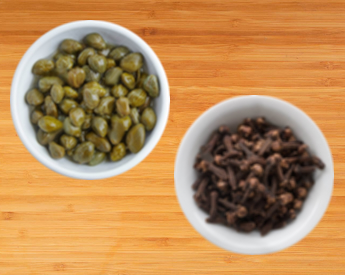
Capers and cloves















Published on 1 January 2024 by Andrew Owen (3 minutes)
When I started writing this recipe blog in 2024, I didn’t even have a name for it. It was just called “Recipes”. But I have a tip of the tongue issue when it comes to the words “capers” and “cloves”. As soon as I use one of them in a sentence, I can’t recall the other word. So it occurred to me that if I called the recipe blog “Capers and Cloves” it might store both words in another part of my brain where I might be able to access them both. Time will tell if it works out.
I started this recipe blog because it’s much easier to read a recipe off my iPad than try to find it in a stack of scanned notebooks. There are lots of recipes I prepare where I’ve done them so many times that I don’t need a recipe. But I’ve included some of them because when I started, I was trying to post recipes on significant national dates, like pancake day.
One difference from other recipe blogs is that I don’t include instructions. This is for the purely selfish reason that there is no copyright in lists of ingredients, and one day I might actually consider publishing a recipe book which includes instructions. For now, there are plenty of resources online. What’s important is the ingredients and the quantities.
Which brings me to my next point. I exclusively use metric measurements. This is partly for precision and partly because US and volumetric measures don’t work well when you’re cooking for one, which I usually am. For treats, like pancakes, I’ll typically include the minimum amount of ingredients to get a good result. If you want to reduce the quantity of cake, batters can be frozen and will typically last for about three months.
I’m a fan of American regional cuisine, and I have a whole blog on metric conversions and substitutions. I’m not a chef, although I did reverse engineering the Caffè Reale from a list of ingredients and nutritional information. But I did do a two-week stint as ship’s cook. And that’s where I learned that cooking is chemistry, and you can’t scale a recipe for four to 40 just by multiplying the quantities by ten.
I highly recommend Harold McGee’s “Keys to Good Cooking”. It has no recipes, but covers food safety and all the basic techniques you need. It also has tables of conversions and substitutes. And crucially, it has advice on how to rescue things when they go wrong.
Besides starting this part of the site, the other food thing I did in 2024 was to finally get myself a good cook’s knife. I went with Anthony Bourdain’s recommendation, the Global G2.
Bon appétit!